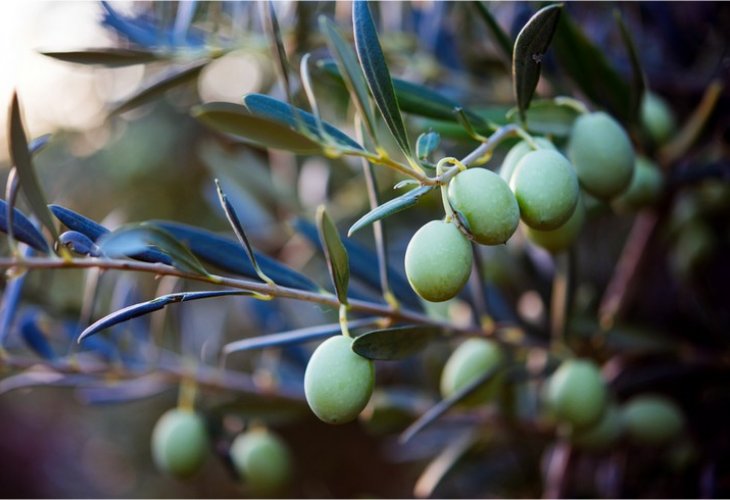The Ancient Healing Secrets of Olive Leaves
Cancer prevention, diabetes and blood pressure regulation, osteoporosis support, and more. Olive leaf therapy, rooted in traditional medicine since biblical times, offers numerous health benefits. Find out how to consume them and their additional advantages in this article.

The olive tree is one of the seven species blessed in the Land of Israel, and for many years, its fruits and leaves have been used in various industries to create delicacies and concoctions. Despite the many medicinal attributes of the fruit, not many are aware of the unique health properties of olive leaves. Olive leaf therapy has been recognized in traditional medicine since biblical times—perhaps not coincidentally—as when Noah sent the dove out of the ark, it returned with an olive leaf as a sign of life.
According to research conducted in 2010, a component known as oleuropein, which protects olive leaves from bacteria and pests, has been found to possess anti-inflammatory and antiviral properties, as well as attributes that protect the liver from various diseases.
Olive Leaves in Cancer Treatment
A few years ago, Italian researchers demonstrated that oleuropein excels at inhibiting the proliferation of cancer cells, losing control and spreading rapidly. The study also found that oleuropein disrupts the division of melanoma cancer cells—in other words, it's a very potent anti-melanoma agent.
Good News for Osteoporosis Patients
Research conducted in Spain in 2011 found that oleuropein has a special ability to promote the production of bone-forming cells, thereby delaying or even preventing the decline in bone density.
Olive Leaves in Regulating Sugar and Blood Pressure
With its anti-inflammatory and antioxidant properties, this substance is so powerful that it has also proven effective in regulating blood sugar levels, balancing blood pressure, and preventing the formation of dangerous blood clots in our arteries. A Swiss study from 2008 showed that drinking a daily infusion of boiled olive leaves (tea) significantly reduces high blood pressure levels.
Olive Leaves and Digestive Issues
Oleuropein has been proven to be a superb fighter in eliminating bad cholesterol (LDL), and a study conducted a few years ago on mice with colitis (chronic intestinal inflammation) showed significant improvement when they were fed olive leaves daily.
Besides oleuropein, olive leaves contain other components like phenols and caffeic acid. Phenols are extremely potent antioxidants with the power to eliminate free radicals responsible for cholesterol oxidation, causing sometimes irreversible damage to DNA.
Caffeic acid is rich in microorganisms, whose activity in eradicating viruses and bacteria from our bodies is highly effective. For instance, regular consumption of tea made from olive leaves during the cold winter months significantly reduces the risk of winter sicknesses such as flu, throat infections, sinusitis, and more.
Moreover, it is highly effective in treating chronic fatigue, viruses, infections, fungi, and more.
How to Prepare an Infusion from Olive Leaves?
Since olive leaves, like other leaves, may have tiny insects forbidden for consumption, the best way to consume them is as follows:
First, it is advisable to wash the leaves thoroughly by soaking them in eco-friendly soapy water for a few minutes.
Next, wash them well under the tap to remove soot and air pollution residues.
Then, you should cook a handful of crushed leaves in a pot with water and bring it to a boil.
After the water boils, you need to reduce the flame and cook the leaves for an additional twenty minutes. This method releases all the active substances.
Finally, after cooking, strain the resulting infusion through a cloth strainer to prevent insects from entering the brew.
The infusion can be kept in glass bottles (for up to two months), and to prepare a cup of tea, pour about a quarter cup of the infusion and fill the rest with boiling water (extract). In winter, it's possible to consume up to five cups of olive leaf tea a day for healthy individuals. Cancer patients or those with other illnesses must consult a doctor before consuming the tea, paying close attention to blood pressure levels. Likewise, pregnant women should do the same.

